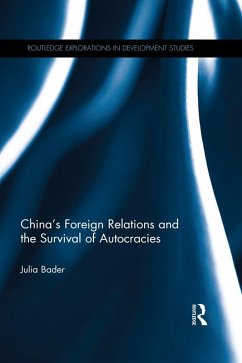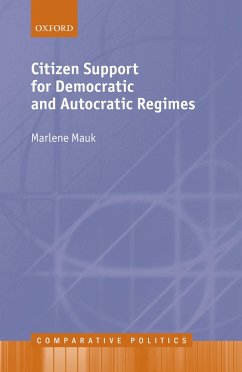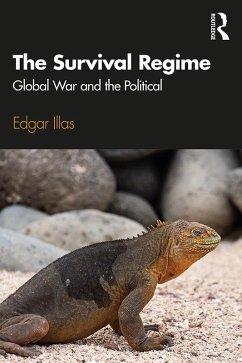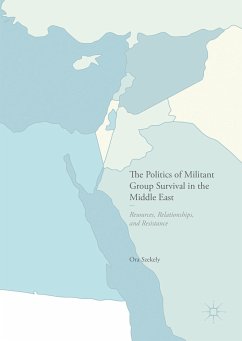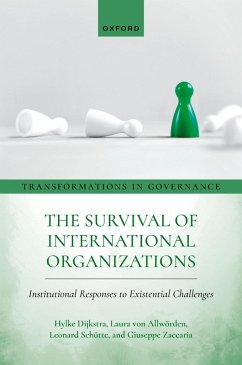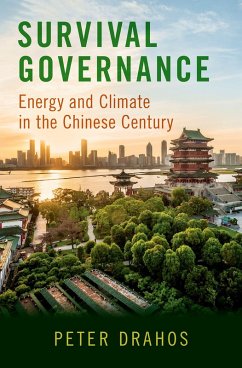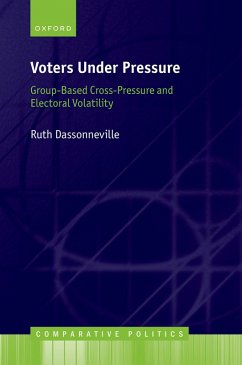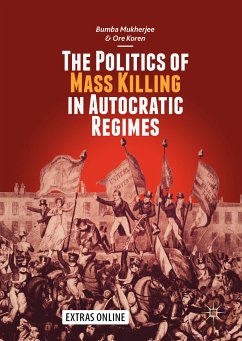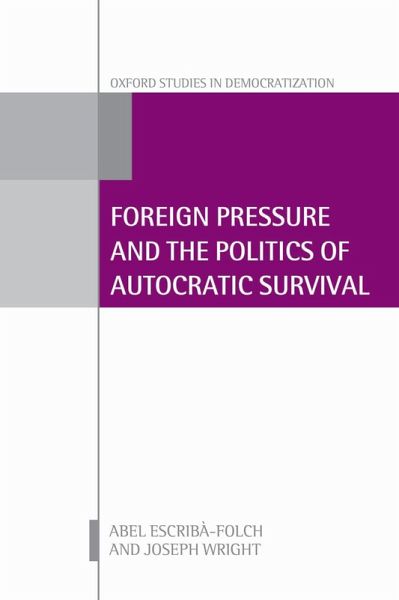
Foreign Pressure and the Politics of Autocratic Survival (eBook, PDF)

PAYBACK Punkte
21 °P sammeln!
Can coercive foreign policy destabilize autocratic regimes? Can democracy be promoted from abroad? This book examines how foreign policy tools such as aid, economic sanctions, human rights shaming and prosecutions, and military intervention influence the survival of autocratic regimes. Foreign pressure destabilizes autocracies through three mechanisms: limiting the regime's capacity to maintain support; undermining its repressive capacity; and altering the expected utility of stepping down for political elites. Foreign Pressure and the Politics of Autocratic Survival distinguishes between thr...
Can coercive foreign policy destabilize autocratic regimes? Can democracy be promoted from abroad? This book examines how foreign policy tools such as aid, economic sanctions, human rights shaming and prosecutions, and military intervention influence the survival of autocratic regimes. Foreign pressure destabilizes autocracies through three mechanisms: limiting the regime's capacity to maintain support; undermining its repressive capacity; and altering the expected utility of stepping down for political elites. Foreign Pressure and the Politics of Autocratic Survival distinguishes between three types of autocracies: personalist rule, party-based regimes, and military dictatorships. These distinct institutional settings influence the dictators' strategies for surviving in power as well as the propensity with which their leaders are punished after a regime transition. Consequently, the influence of foreign pressure varies across autocratic regime types. Further, the authors show that when foreign coercion destabilizes an autocracy, this does not always lead to democratic regime change because different regimes breakdown in distinct ways. While democratization is often equated with the demise of autocratic rule, it is just one possible outcome after an autocratic regime collapses. Many times, instead of democratization, externally-induced regime collapse means that a new dictatorship replaces the old one. This theory is tested against an extensive analysis of all dictatorships since 1946, and historical cases which trace the causal process in instances where foreign policy tools helped oust dictatorships. Oxford Studies in Democratization is a series for scholars and students of comparative politics and related disciplines. Volumes concentrate on the comparative study of the democratization process that accompanied the decline and termination of the cold war. The geographical focus of the series is primarily Latin America, the Caribbean, Southern and Eastern Europe, and relevant experiences in Africa and Asia. The series editor is Laurence Whitehead, Senior Research Fellow, Nuffield College, University of Oxford.
Dieser Download kann aus rechtlichen Gründen nur mit Rechnungsadresse in A, B, BG, CY, CZ, D, DK, EW, E, FIN, F, GR, HR, H, IRL, I, LT, L, LR, M, NL, PL, P, R, S, SLO, SK ausgeliefert werden.




